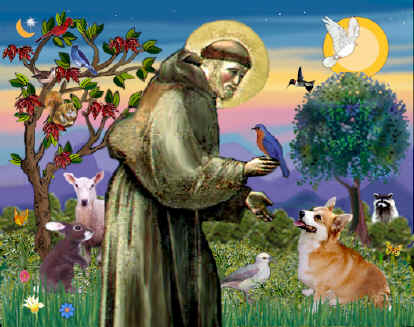Poor Thomas. One moment of doubt and he is labeled for life--"Doubting Thomas". Jesus appears to the disciples one night and Thomas is not there. Maybe he was visiting his twin? When the others tell him that "We have seen the Lord", Thomas gives his so-called doubting reply, "Unless I see the marks of the nails in his hands and put my finger into the nail marks and put my hand into his side, I will not believe." In other words, for this Thomas wants proof, empirical evidence. He is a materialist; like so many of us, he wants proof
before he will believe.
Thomas' refusal to believe without this proof is strange for a man who has spent the last three years with Jesus. He has seen the blind see, the deaf hear, the lame walk, the dead raised to life again. He has heard Jesus' teaching. What more proof could he want? But then this is a big claim by is friends--Jesus has appeared to then!
It's one thing to believe that Jesus is someone. To some he is the Messiah, to others he is a moral teacher, to some he is a revolutionary, to others he is another spiritual master. Some even believe he is God.
Yet, it in not enough to believe things about Jesus. As St. James says, even the demons believe and tremble. We must believe
in Jesus. It is not enough to give intellectual or even faith assent to him. We must trust Jesus; that is the lesson of this Divine Mercy Sunday's motto, "Jesus, I trust in you." We must put our faith, our trust, in Jesus as a divine person, son of God and son of man, not in facts about him, but
in him.
That kind of faith is transformative. As St. John says in today's 2nd reading, "Everyone who believes that Jesus is the Christ is begotten of God..." God is our Father now. He puts his nature, his life into us by his Holy Spirit--that is divine mercy! Transformed by this love and mercy into his children, we can build the kind of community we see in the first reading from the book of Acts. St. Like tells us that "no one claimed that any of his possessions was his own, but they had everything in common."
But what of Thomas? Did his doubt exclude him from this community of faith? Again, we see God's divine mercy. Jesus appears again and this time Thomas is there. Jesus invites Thomas to "put you finger here and see my hands, and bring your hand and put it into my side, and do not be unbelieving, but believe." Jesus challenges Thomas with his own words at his own point of doubt. Thomas' distrust was really in the other disciples' testimony that they had seen the Lord. Perhaps he was more upset at being left out than anything else.
I wonder if it's too much to say that Jesus appeared again to the disciples for Thomas' sake; to offer Thomas a chance to show his faith to them all after his public doubting. After all, Jesus would soon offer Peter the chance to redeem his three-fold denial of him. This is divine mercy.
Thomas' response to Jesus is one many of us echo each time we receive our Lord in the Eucharist, "My Lord and my God." That is the response of faith in Jesus. But then Jesus reaches even beyond Thomas to each one of us when he says, "Have you come to believe because you have seen me? Blessed are those who have not seen and have believed." We are those who have not seen Jesus as Thomas did, but have believed. We, too, say "My Lord and my God."
Strengthened in his faith by his Lord and his God, Thomas becomes one of whom Acts says, "With great power the apostles bore witness to the resurrection of the Lord Jesus..." This witness and power of faith eventually brought St. Thomas to preach the Gospel in India. He founded the Church there around AD 52 and was martyred around AD 72. When travelers arrived in India, they found the Church, through St. Thomas, had gone there before them. The
Syro-Malabar Catholic Church is the largest of the Catholic Churches in India. It traces its origins to St. Thomas. It is in full communion with Rome.
Doubting Thomas? Not after receiving God's Divine Mercy in Jesus. Not after he said, "My Lord and my God." We repeat his words as we receive Jesus in the Eucharist. As Jesus said, "Blessed are those who have not seen and have believed."

















